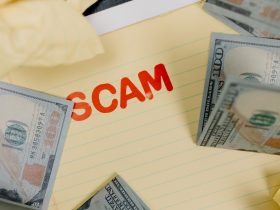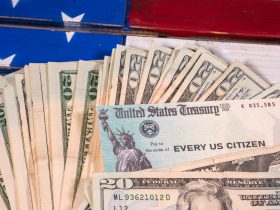If you are a business owner, it can be difficult to gauge how your business is perceived by customers. While you might think that you have everything in your business just right, the people who are visiting might not be having the same experience that you are assuming they are.
Retail Business
If you own a store that sells physical goods, it can be hard to judge how consumers are reacting to your retail displays, your merchandise choice and your product pricing. Many people are in the habit of browsing, so you are left wondering if these browsers were just wasting some time or if they were not happy with any number of things at your store. Maybe no one greeted them when they walked in the door and asked them if there was anything they could help them find, so it was really easy for them to turn around and leave. If they were in your store to find something very specific and could not find it easily and no one offers to help, they do not feel obligated to spend a lot of time scouring your racks and displays to find it. Lacklustre sales staff can negatively affect your business, causing a loss of sales and business. Neither of which is good for business of any size.
Restaurant Business
Almost everyone knows that the restaurant business is challenging. People’s taste in foods changes about as often as they change their clothes. Rising costs of meat and dairy can make for a slim profit margin. Mismanaged food inventories can result in unneeded waste and lost profits. Staff members that show up to work in a bad mood can lead to unhappy diners. If your dining area is visibly dusty or unclean, customers are instantly turned off. Food that is not cooked properly or wrong orders upset people. In a nutshell, there are a lot of factors that can attribute to an under-performing restaurant. Unless you are directly speaking with customers as they leave your store, it can hard to figure out how they felt their experience at your restaurant was or if they will ever come back again. In a time when return business contributes to the success of a restaurant, making sure that you have impressed your guests enough to come back again is important.
Take Matters into Your Own Hands
In recent years, business owners that are looking for an unbiased review of their operations have started using the services of a mystery shopper. These secret shoppers are contracted to visit their business and give business owners information on their shopping experience went. The business owner can define what areas that he wants the secret shopper to report on. In retail stores, there’s a focus on the entire shopping experience and the employees tending the store. The secret shopper will then take note of how many employees were on staff at the time of their visit. They would be asked whether they were given a friendly greeting when they walked into the store if they were offered help to find what they were looking for. Other things that secret shoppers assess are if the sales staff was well-groomed and professional throughout their interactions. Other things that secret shoppers pay attention to are whether they were recommended other products or offered related, complimentary items to go with their purchase. Other factors that are assessed would be the cleanliness of the store and the length of time it took to complete the transaction. Secret shoppers that are contracted to visit restaurants operate much the same way, only with a few adjustments that start from the time they walk in the door to the time they leave the establishment. They are asked if they were greeted in a welcoming way and promptly seated. Once they are seated, the secret shopper evaluates how the server interacts with them. Were they served a glass of water immediately and then asked if they would like something else to drink or an appetizer to get started with? After taking an initial drink and appetizer order, does the server let the customer know about any specialty dishes or nightly specials? During the dinner, was the server attentive to their needs, getting drink refills and asking if everything was OK? After finishing the meal, did the server offer the diner dessert? For most people, the server that waits on them really defines their experience, so it is important that he or she really knows how to sell the menu and offer guidance when a diner has questions. He or she should be able to quickly recommend dishes if the customer is having a hard time deciding what they want to eat. An outstanding server can raise the average ticket price of a diner’s bill just by offering suggestions and recommendations to customers. For restaurateurs, this means a higher profit and a happy customer.
Once a secret shopper has completed their task, their feedback is provided to the business that contracted the work. In many times, these shoppers are rewarded with shopping vouchers or other forms of compensation for their work and feedback.
This information is invaluable for business owners because they get an unbiased review of a shopper or diners experience from the time they walked in the door until they time they left the establishment. While in many cases this might just be a random sampling of how well of a job their staff is doing, it provides some very insightful information to the business owner. Using this information, he can make adjustments as needed. If staff members are lacking in their customer service skills, he can address this with additional training or perhaps disciplinary action if the transaction went horribly wrong. On the other hand, if everything went exceptionally well, he might alternatively decide to reward his staff for their professional and dedicated work.
One thing that is for certain is that a secret shopper can be particularly helpful for business owners that want to learn how people feel about their shopping or dining experience at their establishment.



























